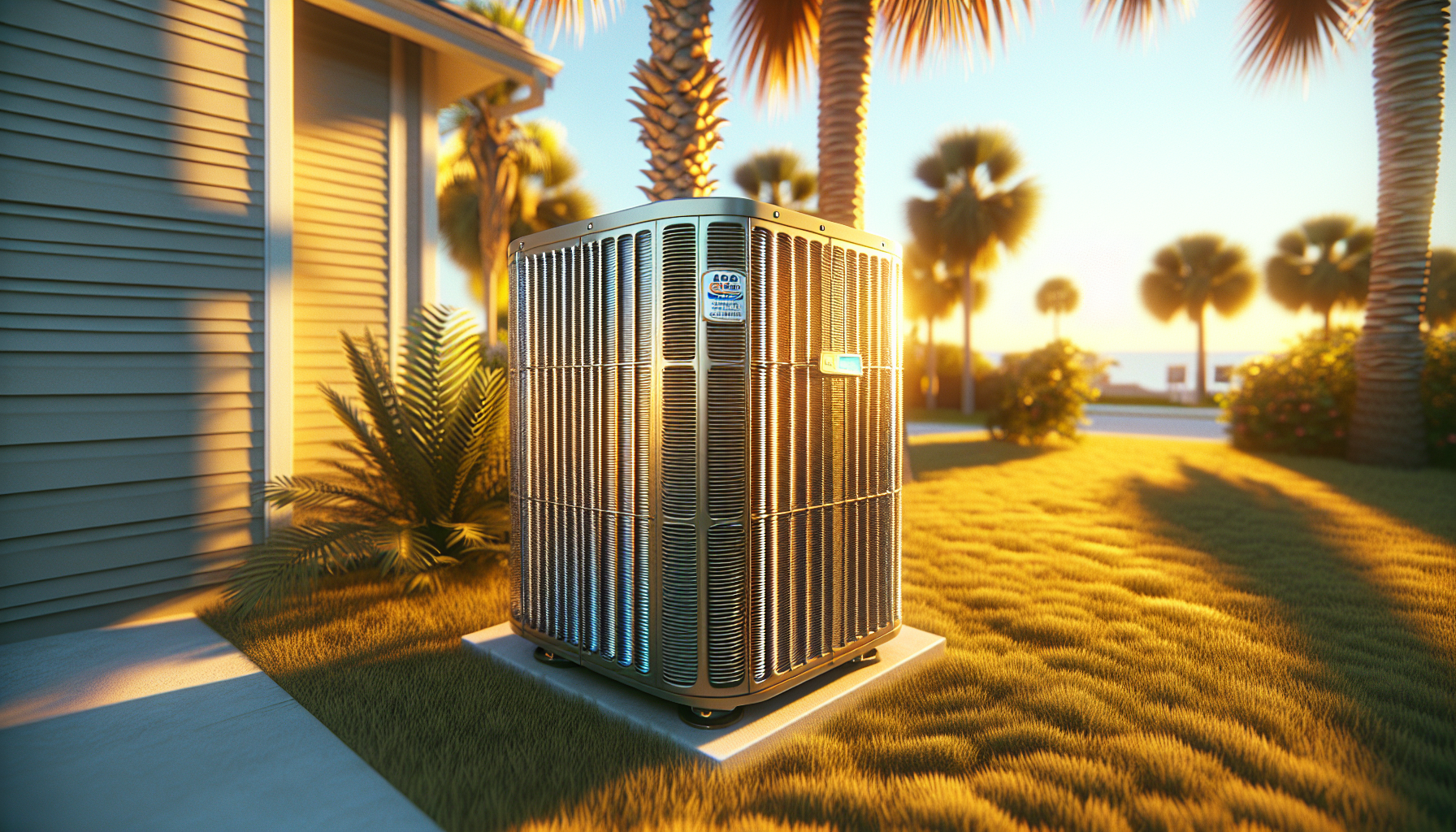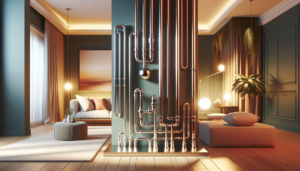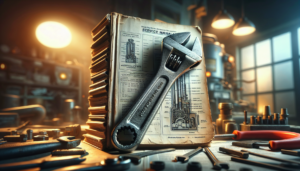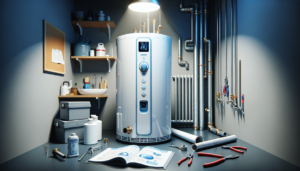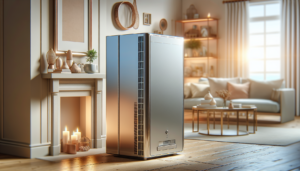Have you checked your heater and air conditioner this season?

Table of Contents
ToggleSeasonal HVAC Tune-ups Near Ferry Pass FL
You live near Ferry Pass, FL. You see hot days, humid nights, and storms that bring salt air and strong winds. Your HVAC keeps your home cool and warm. You should care for it each season.
You will read clear steps. You will learn what a tune-up does. You will learn when to call a pro. You will learn how to spot problems early. You will learn why KadeCo Inc. can help.
What is a seasonal HVAC tune-up?
A tune-up is a check and simple service for your heating and cooling system. A trained technician inspects parts, cleans parts, and adjusts parts. The goal is to make your system run well and last longer.
You can think of a tune-up like a health check for your HVAC. The technician looks for small problems before the problems grow. Small fixes cost less than big repairs.
Why you need tune-ups in Ferry Pass FL
You live in a warm and humid place. You use your air conditioner a lot. Salt air can harm outdoor parts. Storms can drop debris on your unit. These things add wear to your system.
You should get tune-ups to keep your system safe. You should get tune-ups to save energy and money. You should get tune-ups to keep your family comfortable and healthy.
When to schedule tune-ups
You should schedule a tune-up in spring before hot weather. You should schedule a tune-up in fall before cooler weather. A cooling check in March or April helps you avoid mid-summer breakdowns. A heating check in September or October helps for cooler nights.
If you have both heat and air in one system, you should schedule two checks a year. If your system only cools, you should schedule one check a year. If your system is older or has problems, you should schedule more often.
What a technician does during a tune-up
A technician follows a list. The technician checks safety, checks parts, cleans parts, and tests performance. The technician will tell you what needs attention.
Below is a simple table that shows common tasks, what the technician does, and why each task matters.
| Task | What the technician does | Why it matters |
|---|---|---|
| Change or inspect filter | Replace dirty filter or show you how to replace it | Clean air moves freely and allergens drop |
| Check refrigerant level | Measure pressure and fix leaks if needed | Proper refrigerant keeps cool air strong |
| Clean coils | Remove dirt and debris from coils | Clean coils cool and heat more efficiently |
| Inspect electrical parts | Tighten wires and check capacitors | Good wiring reduces fire risk and failures |
| Lubricate moving parts | Oil motors and bearings | Parts run smooth and wear slows |
| Check thermostat | Test and calibrate settings | Accurate control keeps you comfortable |
| Clear condensate drain | Remove clogs from the drain line | No water backup and no mold growth |
| Test system run | Run the system to watch performance | Technician can spot odd noises or short cycles |
You will get a clear report after the check. The technician will show you issues and cost estimates. You will decide what to fix.
How long a tune-up takes and how much it costs
A tune-up usually takes 45 to 90 minutes for one system. The time changes by system age and size. If a technician finds problems, the work will take more time.
Prices vary by region and work needed. You can expect a basic tune-up to cost between $80 and $200. If you need parts or repairs, costs go up. The technician will give a clear price before work starts. You should ask for a written estimate.
How tune-ups save you money
You pay less on energy when your system runs well. Dirty parts force your system to work harder. Hard work uses more electricity. A clean system uses less power and lowers your bill.
A small repair today stops a big repair later. A new compressor costs more than several simple tune-ups. You save money by fixing small problems early.
Example math:
- If a tune-up saves you $10 a month, you save $120 a year.
- If a tune-up costs $120, it pays for itself in one year from the energy saved.
This math shows why tune-ups make sense.
Signs your system needs service now
You should call a technician if you see any of these signs:
- Your system makes new or loud noises.
- Your home feels too warm or too cold.
- Airflow is weak from vents.
- You smell mold or burning.
- Water pools near the indoor unit.
- Your energy bills jump without reason.
- Your system turns on and off too often.
If you see any sign, you should act. You should not wait until a breakdown happens.
DIY checks you can do
You can do simple checks safely. These checks help you spot problems early. Do these checks before calling a pro.
- Change the air filter every 1 to 3 months. A clean filter helps the system breathe.
- Keep the area around the outdoor unit clear. Remove leaves and toys. Clear at least two feet around the unit.
- Check the thermostat settings. Set the cooling or heating temperatures properly. Try new batteries if the display fades.
- Look for water near the indoor unit. If you see water, call a technician.
- Check vents and registers. Make sure they stay open and free of dust.
- Listen for odd noises while the system runs. Write down the noise and when it happens.
Do not open the cabinet that holds electrical parts. Do not touch capacitors or wires. Call a technician for electrical work.
Safety checks and what to avoid
You should avoid risky tasks. Electricity and refrigerant can hurt you. A technician has tools and training to handle them.
You should not:
- Touch wiring or circuit boards.
- Open refrigerant lines.
- Try to run the system with odd smells or smoke.
- Lift heavy parts by yourself.
You should:
- Turn off power at the breaker before you touch anything near the unit.
- Call a professional for repairs that need tools or special parts.
- Keep children and pets away from the outdoor unit and work area.
How to choose a good HVAC company
You will find many HVAC companies. You should pick one you trust. Use these steps to pick a good company.
- Check license and insurance. A licensed tech knows the rules. Insurance protects your home.
- Read reviews. Look for steady good reviews over time.
- Ask for a written estimate. The estimate keeps work clear.
- Look for fair price and clear answers. A good company explains work in simple words.
- Ask about guarantees. A clear guarantee shows confidence in work.
- Check experience. A company with years of work will likely know more.
You should avoid companies that push costly replacements without proof. A good tech shows parts and explains reasons.
Why you can trust KadeCo Inc.
KadeCo Inc. is a local company in Pensacola, FL. KadeCo has worked in the area since 1997. KadeCo started after Kade Youmans finished his universal technician certification. Kade worked for 20 years for other companies before he opened KadeCo. He learned how to install and fix systems well.
KadeCo wants to treat customers with respect. KadeCo wants fair prices and honest work. KadeCo will not try to sell you parts you do not need. KadeCo will tell you what to fix and why. KadeCo offers free quotes on all jobs. KadeCo will recommend another company if KadeCo cannot do the job.
KadeCo promise:
- The needs of the customer come first.
- KadeCo will act with honesty and integrity.
- If KadeCo cannot fix the problem, KadeCo will tell you and suggest someone who can help.
You can call KadeCo. You can ask for a tune-up or repair. You will get a clear price and a friendly technician.
KadeCo Inc
209 Brandywine Rd
Pensacola, FL 32507
(850) 516-7552
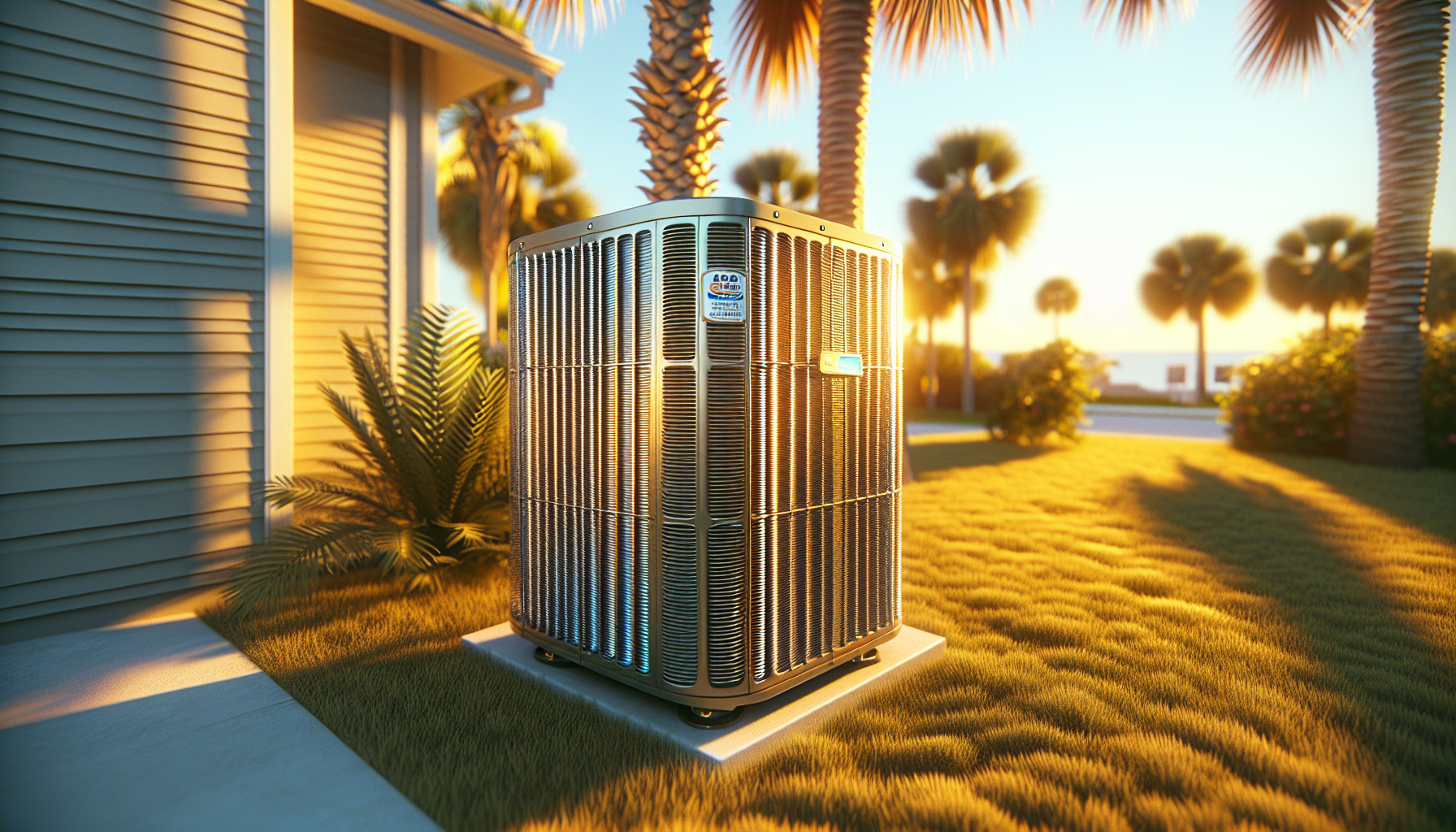
What to expect when KadeCo visits
You will get clear steps when you call. KadeCo answers your call and sets the time. KadeCo shows up on time. A technician wears a uniform and ID.
The technician greets you and asks a few simple questions. The technician inspects your system and checks parts. The technician shows you any problems and explains them in plain words. The technician gives a written estimate for repairs. You approve the work and the technician starts.
After the work, the technician runs the system to test it. The technician cleans up the area. The technician gives a checklist and tips for you. You pay and get a receipt. You will feel safer and more comfortable at home.
Questions to ask your technician
You can ask these simple questions when the technician arrives:
- What did you inspect?
- What did you find?
- Do I need parts now?
- How much will the parts and labor cost?
- How long will the repair take?
- Do you offer a warranty?
- How often should I call you for tune-ups?
- Can you show me the broken part?
A good technician answers patiently and shows you parts. A clear answer helps you decide.
Common HVAC parts explained
You can learn a few names. Knowing the names helps you talk with the technician.
- Compressor: The compressor sits in the outdoor unit. It makes the refrigerant move and change pressure. It helps the system cool your home.
- Condenser coil: The condenser coil sits in the outdoor unit. It releases heat from the refrigerant to the outside air.
- Evaporator coil: The evaporator coil sits inside near the air handler. It absorbs heat from your home and cools the air.
- Air filter: The filter traps dust and dirt. A dirty filter slows airflow and hurts efficiency.
- Thermostat: The thermostat controls temperature. It tells the system when to turn on and off.
- Blower motor: The blower motor sits in the air handler. It pushes air through ducts and vents.
- Capacitor and contactor: These electrical parts help start motors. A bad capacitor or contactor can stop the system.
You do not need to memorize all parts. You only need to know a few so you can ask clear questions.
Seasonal checklist for Ferry Pass FL
Use this checklist for spring and fall tasks. The list keeps your system healthy.
| Season | Tasks |
|---|---|
| Spring (before hot months) | Replace filter. Clean area around outdoor unit. Schedule professional tune-up. Check thermostat cool setting. Clear condensate drain. |
| Fall (before cool nights) | Replace filter. Schedule professional tune-up. Test heating function if you have heat. Clean vents and registers. Check insulation on ducts. |
You should write the date of each task on a calendar. A simple mark helps you remember.
How storms and salt air affect your system
Salt air near the coast can corrode metal parts. Corrosion reduces life span. Storms can drop limbs or blow sand into the outdoor unit. Debris blocks airflow.
You should check your outdoor unit after storms. You should ask a technician to inspect for damage and corrosion. You should consider a slightly higher tune-up frequency if you live very near the beach.
How tune-ups help indoor air quality
The air filter, coils, and drain line affect indoor air. A dirty filter lets dust and pollen recirculate. Dirty coils can grow mold. A blocked drain line can make water sit and grow bacteria.
A technician cleans parts and checks for mold. A fresh filter traps more dust. A clean system gives you cleaner air, which helps kids and people with allergies breathe easier.
Replacing parts or replacing the whole system
Sometimes a part fails. Sometimes the whole system ages. You should choose replacement when repairs cost more than half the value of a new system. A technician can show the math.
You should consider efficiency upgrades. New systems use less electricity. New systems can lower your monthly bills enough to pay for the unit over time. Ask your technician for clear numbers and energy savings estimates.
Worry about warranties
Parts and systems often come with warranties. A warranty covers part failures for a set time. You should keep records of tune-ups and repairs. Records help you use warranties.
If a technician replaces a part, ask for the warranty paperwork. Keep that paper safe. Ask if the warranty needs proof of regular maintenance. Some warranties require tune-ups every year.
How to tell if a technician is honest
You can test for honesty with simple checks.
- The technician shows ID and explains work before starting.
- The technician offers a written estimate and asks for approval.
- The technician shows broken parts after removal.
- The technician answers your questions in plain words.
- The technician does not pressure you to buy extra parts you do not need.
If a technician pressures you or avoids questions, stop and ask for time to think. You can call another company for a second opinion.
Green tips: Save energy and earth
Simple actions cut energy use and help the planet.
- Raise the thermostat a few degrees in summer. Your home will stay comfortable and you will save energy.
- Use ceiling fans to make rooms feel cooler.
- Seal leaks in doors and windows to keep cool air in.
- Add insulation in the attic if needed to reduce heat gain.
- Use a programmable thermostat to cut costs when you are away.
Small steps add up to big savings over months and years.
What to do if your AC stops mid-summer
If your AC stops, do these steps first:
- Check the thermostat. Make sure it has power and is set right.
- Check the circuit breaker. Flip it off and on if tripped.
- Check the outdoor unit. Clear debris and make sure the fan can spin.
- Replace the filter if it is very dirty.
- Call a technician if the system still does not run.
Do not try to fix electrical parts yourself. Call a professional.
How long do HVAC systems last?
A well-maintained system can last 15 to 20 years. Age varies by use, brand, and care. You should invest in tune-ups to extend life. You should plan for replacement if your system is older and needs frequent repairs.
Costs you may see in a tune-up report
A tune-up report can show different costs. You may see minor costs like filters or small parts. You may see bigger costs like a new motor or compressor.
Common costs:
- New filter: $10 to $50
- Capacitor or relay: $50 to $200
- Fan motor: $200 to $600
- Compressor: $800 to $2,500
A technician will give a written estimate. You should compare prices and warranties.
Frequently asked questions (FAQ)
You can read simple answers to common questions.
Q: How often should I tune my HVAC?
A: You should tune it once a year for cooling only. You should tune it twice a year for systems that heat and cool.
Q: Will a tune-up stop all breakdowns?
A: No. A tune-up lowers risk and finds problems early. But parts can still fail suddenly.
Q: Can I do a tune-up myself?
A: You can do basic checks like changing filters and clearing debris. You should not do electrical or refrigerant work.
Q: What is the best month to schedule a tune-up?
A: For cooling, schedule in spring. For heating, schedule in fall. This timing reduces the chance of a mid-season failure.
Q: Does KadeCo offer free quotes?
A: Yes. KadeCo offers free quotes on all jobs.
Q: Will KadeCo push me to buy things I do not need?
A: No. KadeCo does not upsell. KadeCo will not fix things that are not broken.
A simple plan you can follow
You can make a small plan. A plan keeps you on track and saves money.
- Spring: Change filter, clean around outdoor unit, call KadeCo for a tune-up.
- Summer: Check thermostat and vents monthly. Watch energy bills for spikes.
- Fall: Change filter, call KadeCo for a tune-up if you use heat, check heating function.
- Winter: Keep vents clear and avoid blocking the outdoor unit with yard work.
Follow this plan and your system will run better.
Final reminder and contact
You should schedule seasonal tune-ups to keep your system safe and efficient. You should act when you see signs of trouble. You should ask clear questions and get a written estimate. You should pick a company you trust.
For honest work and fair prices, go to KadeCo Inc. KadeCo will help you with tune-ups, repairs, and questions. You can call or visit.
KadeCo Inc
209 Brandywine Rd
Pensacola, FL 32507
(850) 516-7552
You can call KadeCo for a free quote and a clear plan. You can expect honest answers and careful work. Your home will feel more comfortable and your system will work longer.
No related posts.


